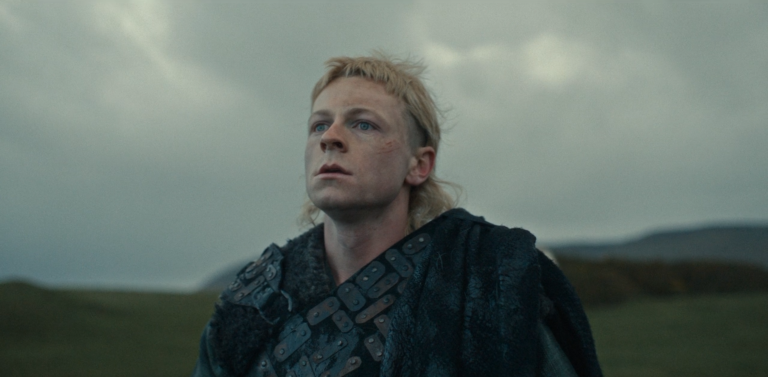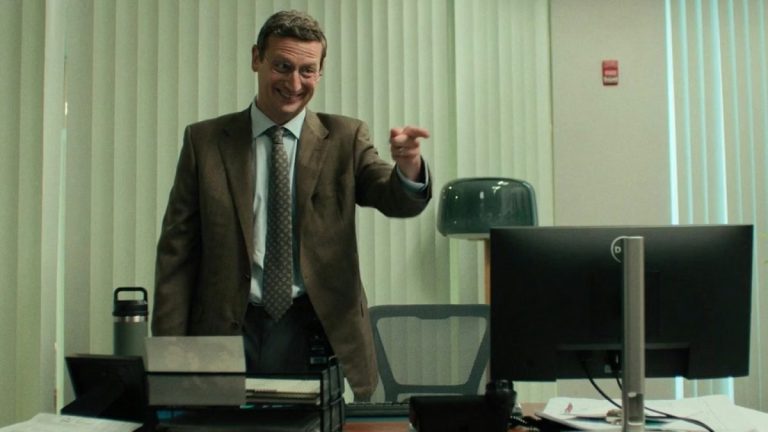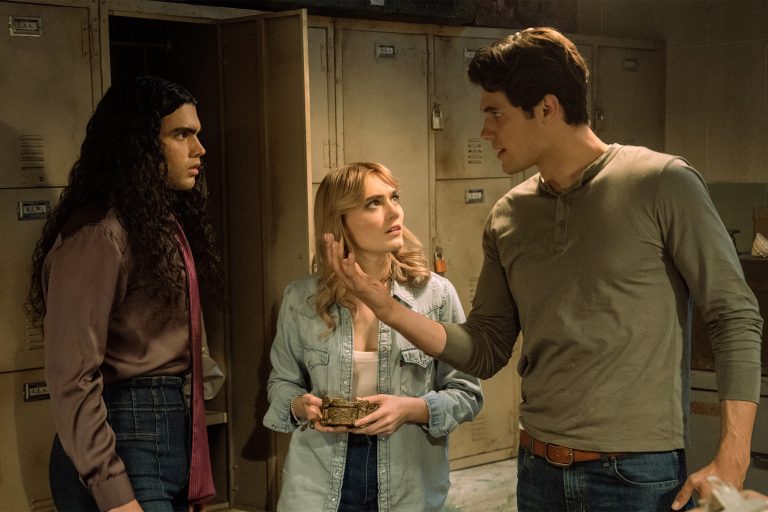The 10 Best Miniseries of 2022: A few years ago, I came across an article in Sight and Sound magazine where the editor shared high praise for The Sopranos and the tide of shows that followed it. He begged to consider them as feature films with deeper characterizations due to the long-time span allotted to them. However, many people often prefer movies to series due to a lesser time commitment to the form and content while reaching the end of the story with much lesser time. If that is also your preference, miniseries are a great way to delve into the TV content pool without making a huge commitment.
The one-and-done season approach will not require you to spend days (or weeks) to reach a conclusion. While making a list of such shows, The Offer and The Staircase came incredibly close to being part of them but were left out for different reasons. The Offer, which I consider my favorite fan-service piece of content from 2022, has many unnecessary characters and subplots that make it a less-than-perfect show. Despite having an incredibly soft spot for The Godfather and Francis Ford Coppola, adding this miniseries to the list would mean I’m being partial.
And, while The Staircase is stimulating and features the incredible acting performances of Colin Firth, Tony Collette, Juliette Binoche, and Michael Stuhlbarg, it is bogged down by questionable editing choices that abruptly introduce flashbacks and makes the narrative needlessly difficult to follow. Alas, better miniseries were made this year, not just in the US but worldwide. Let’s get introduced to this fascinating short-length series.
Honorable Mention:
A Friend of the Family
‘A Friend of the Family’ never makes us sympathize with a sexual predator while telling the story of a family’s life being torn apart by a neighbor. It might have been appealing in terms of narrative exploration to peel back the dark layers of Robert’s personality. However, the miniseries show him as a terrifying presence in this family’s life and a selfish, vile, and obsessive pedophile.
It chooses to focus on different elements that got wrecked due to the reckless acts of this individual with an insufficiently treated medical condition. As a result, it becomes a navigation of his impact than a fetishistic look into his fascinating mind. Evil is considered evil, and that is what this genre needs more than vapid intrigue about such sociopaths’ terrifying appeal.
10) Black Bird

In a recent wave of serial killer dramas, it becomes difficult to separate good from great, let alone good from bad. With enough funds to hire the actors you want and to have the production value that can induce a genuine emotion of horror, many shows are piling up without any differentiator to make them exemplary. ‘Black Bird’, streaming on Apple TV+, walks in the footsteps of Netflix’s Mindhunter to unravel the mind of a serial killer without fetishizing it. And instead of making the killer central to its plot, it shows him through the eyes of a criminal who gets caught in a deal where he needs to elicit a confession from him.
Much of the narrative hinges on the question – Did he or did he not? It puts the script in an investigative format where this non-police, non-medical professional uncovers hidden parts of himself while trying to make the killer empathize with him to share his story. Otherwise, how would he trust you with that sensitive information, right? With Taron Egerton’s excellent turn against Paul Walter Hauser’s Larry, the brooding thriller impacts deeper due to the gradual psychological breakdown of both. It stands apart due to its mature handling of the characters’ pathos while unfolding the killer’s life akin to Making a Murderer.
9) The Playlist

Created by Per-Olav Sørensen and Hallgrim Haug, ‘The Playlist’ tells the story of a young entrepreneur (Daniel Ek) who came up with the idea of a music streaming platform that we now know as Spotify. Easily the most fascinating part about this Swedish miniseries is how it tells every single episode from a different perspective to only allude to what might have happened without clearly endorsing any of them. While the Rashomon influence is evident, this Netflix release benefits from its compelling narration that deftly weaves varying sides of the music business, from piracy to studios, from exploitation to fair wages.
Within a span of its six episodes, it gives a detailed tour from the initial stages of ideation to the gradual stages of funding, controversies, and success. The series makes us look at these events from the perspectives of a young, ambitious entrepreneur, a deeply committed coder, a corporate lawyer, a music studio head, and an impulsive moneyman. Despite the deeply flawed personalities of these characters, we are subjected to a highly emotional journey. Its ability to make us invest in each and every one of their sides equally while being critical about it makes it truly remarkable.
The series presents a rather pessimistic view of the artists’ future, even though they bear the brunt of all their egos and money-minded minds. It feels unpretentiously realistic, with these billionaires gaining greater power over how the world works.
8) High Water
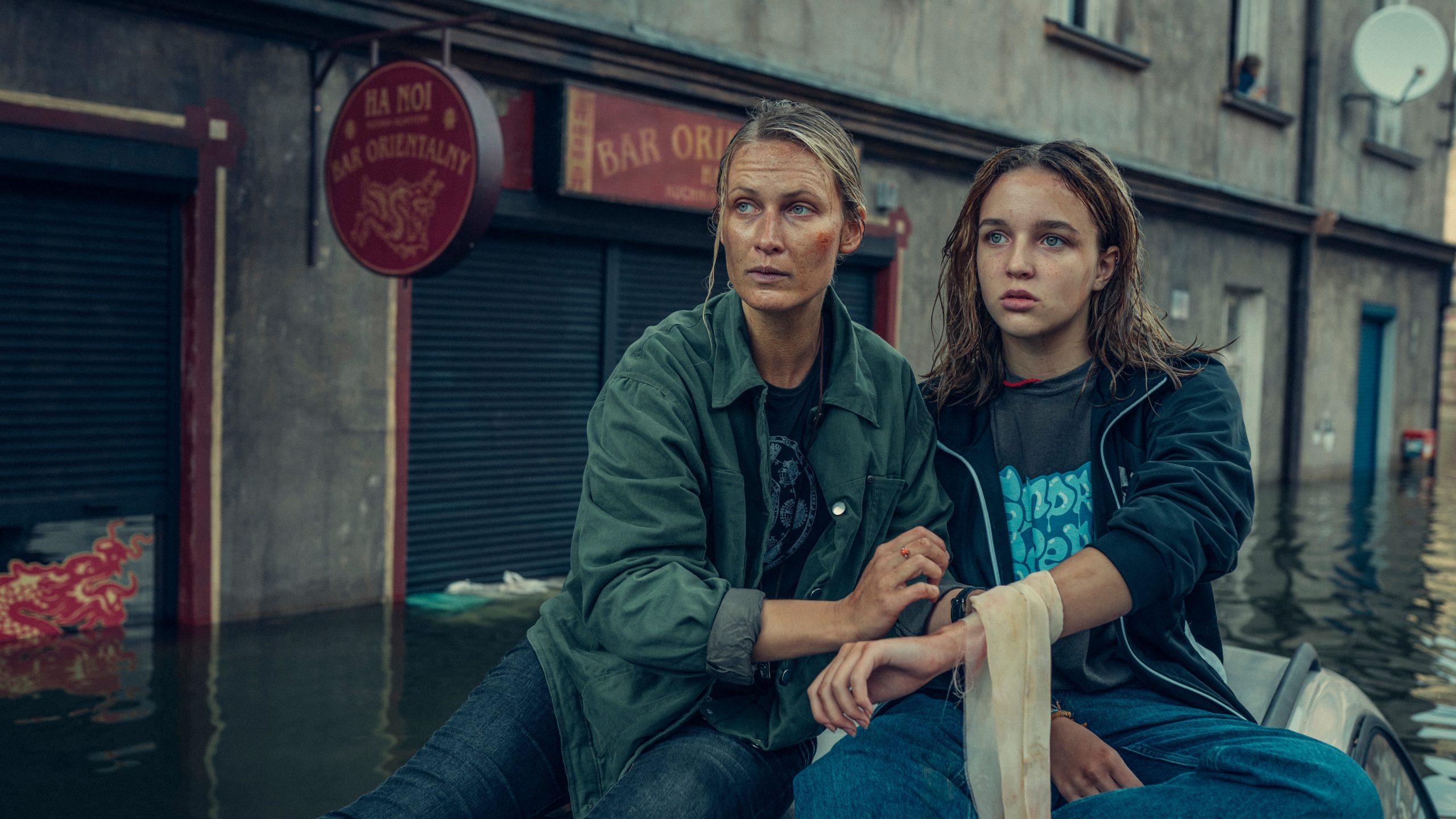
Based on the 1997 Millennium flood in Poland, ‘High Water’ is an intensely emotional miniseries. It follows the events that occurred during the flood with the help of fictional characters. Like Five Days at Memorial, it is a survival drama with moral conflicts. However, unlike the Apple TV+ series, where the screenplay seems like it was never developed beyond its first draft, it benefits from the kind of writing that keenly understands the pathos of its characters. Since the characters are not direct replicas of real-life people but represent a certain side behind managing this disaster, we see varying perspectives and deeply layered characters.
Through its six episodes, we witness the disastrous impact of several elements at play during this incident that became pivotal in the lives of the citizens. Besides the intricately detailed script filled with intelligent dialogue writing, this Polish series benefits from a humanist lens in its direction. Rather than being biassed, it compassionately depicts the struggles of a small town’s residents, whose concerns extend beyond saving themselves from the flood because ignorance of their needs makes them more protective of their future survival. Even when a politician discovers the true nature of spineless superiors or a female hydrologist’s logical deductions is brushed aside, it presents character arcs that convey more than a strictly biographical drama could.
7) Pam & Tommy

Created by Robert Siegel (writer of Darren Aronofsky’s The Wrestler), ‘Pam & Tommy’ takes an intimate look into a popular scandal. Pamela Anderson and Tommy Lee, whose names are henceforth associated with the sex tape distributed without their consent, had deeper aspects of their personality that were rarely explored in popular culture. The narrative uses the scandal that made them infamous and weaves an intriguing tale to focus on these two pop figures as human beings. While doing so, it also speaks about the delicate relationship between celebrities and their fans and touches upon the themes of wealth, privilege, and sexism.
It follows the story through the eyes of Rand Gauthier, a simpleton who was hired to design the interior of Tommy’s home. Yet what unfolds due to the egos of these two men and the exploitative nature of the world is a pissing war where both try to outdo each other. Although the narration makes it an engrossing watch (particularly Craig Gillespie’s stylish direction), what stands out are Lily James’ & Sebastian Stan’s endlessly captivating acting performances. Lilly’s performance exudes a lot of heart for Pamela’s struggle during this period. She could not proceed with her acting career as she wanted and had to maintain an image simply for being a woman in this business.
6) The Lørenskog Disappearance
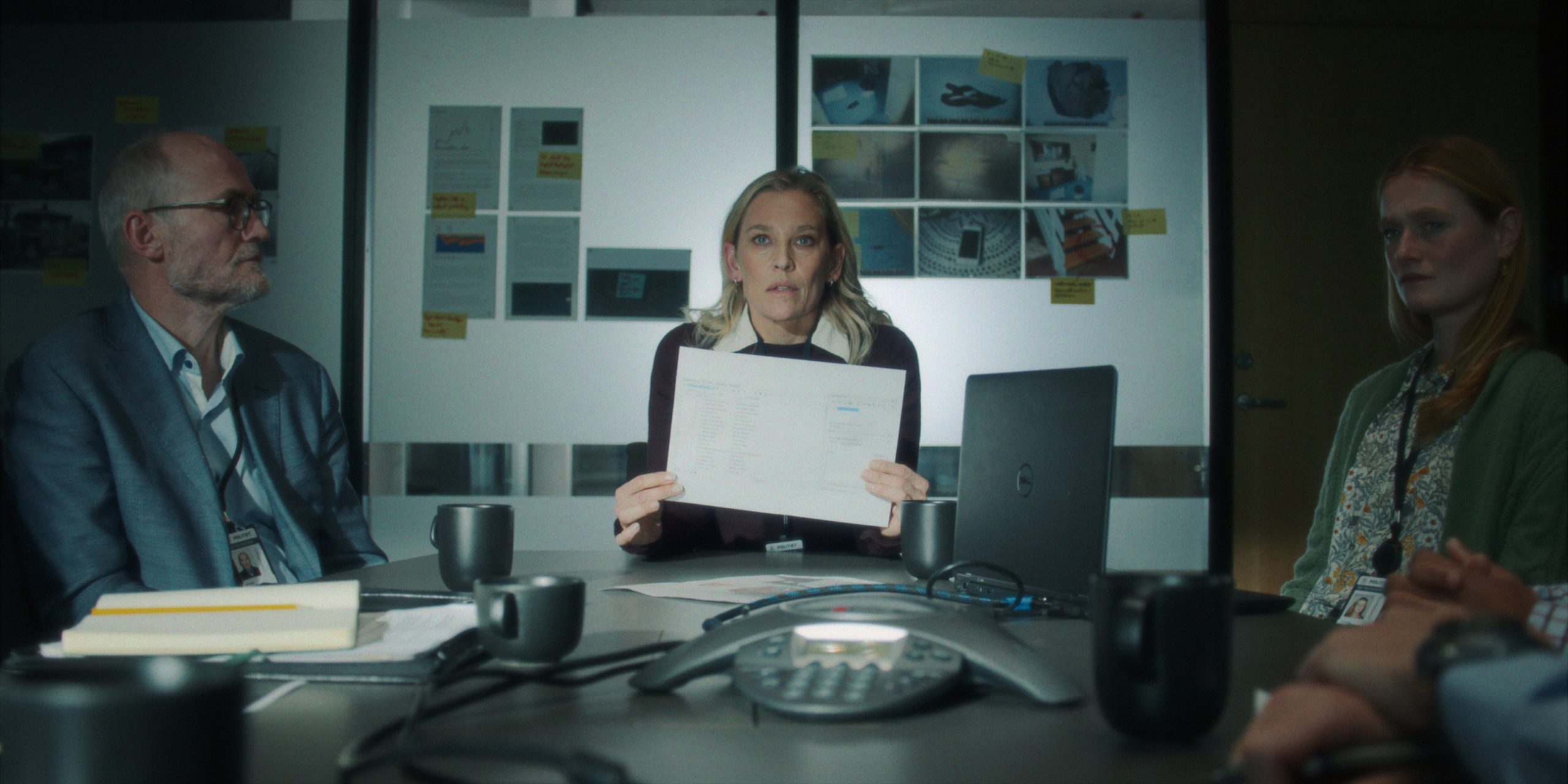
While dealing with an infamous case from the country, ‘The Lørenskog Disappearance’ uses an intriguing approach to narration. This Norwegian miniseries employs distinct perspectives on a single case to unravel the mystery. It presents different ways to reach an understanding of the truth. This miniseries tells the story of the disappearance of a billionaire’s wife from the perspectives of investigators, lawyers, informants, and two journalists with opposing political beliefs. As a result, it becomes a multi-faceted affair instead of a regular linear investigative drama.
We witness different approaches to learning what has happened, which reshapes our understanding and how we choose to look at these events along the way. This Rashomon-style approach helps in this retelling because it does not bind the narrative to a limiting bias and makes us open to new possibilities about this case, which is, apparently, still unsolved. And along the way, it touches on a number of issues plaguing their society, ranging from domestic abuse that is casually ignored to the nature of billionaires buying their way out of anything and everything. It is stimulating because of the discourse’s nature, and moreover, the fascinating narration turns it into a brilliant thriller.
5) Fleishman is in Trouble

Based on her own book, Taffy Brodesser-Akner created ‘Fleishman is in Trouble,’ a drama series that presents an amusing blend of black comedy, satire, and tragedy. It follows a New York couple whose lives get shattered after their divorce. While Toby has to deal with the added familial duties due to his ex-wife’s neglect, Rachel has to find ways to be content with herself and her loneliness. With a soul-crushing performance by Claire Danes, the series presents Rachel’s pathos after spending most of its duration on Toby’s mental anguish.
The difference feels oddly justified in the narrative sense since it highlights the feeling of neglect that she always felt but was hardly noticed by Toby. Instead, a straight, white man born with a number of privileges feels that his life has suddenly started to crumble. Be it Jesse Eisenberg or Lizzy Caplan, they embody their well-rounded characters through their mature performances. Caplan’s voiceover brilliantly narrates additional aspects of how it feels to go through such separation and how it impacts a person’s perception of oneself and the world. What stands out in the series is its emotional earnestness.
4) The Dropout

This year saw a rise in dramas revolving around multi-billionaires and their corrupted motives. While popular culture showed them as heroes during their rise, these shows tried to destroy the idea that wealth equals excellence. With ‘The Dropout,’ we witness how fame and ambition made Elizabeth Holmes make impractical claims without a reality check. She blazed through the turmoil of her past traumas and saw herself as a phoenix rising from the ashes – much similar to the heroism narratives fed to her (and us). The writing showcases the terrible experiences that led her to believe in her crooked motives strongly.
While the series humanizes her, it is not sympathetic. It rather showcases her story as a cautionary tale of the horror that an ambition blinded by a sense of virtuosity can lead to. It becomes a timely lesson since most such CEOs claim to have noble motives for seeking a certain image for themselves. Amanda Seyfried captures Holmes’ terrifying stare while immersing herself in the character’s psychotic tendencies, resulting in a chilling portrayal of this despicable individual. Naveen Andrews, Ebon Moss-Bachrach, Stephen Fry, and William H. Macy, the other supporting cast, elevate this character drama into a terrifying thriller.
3) Gaslit

With All the President’s Men, we saw just one side of what brought forth the Watergate scandal. What ‘Gaslit’ highlights is how those reporters would not have even gotten a chance to be considered journalistic heroes for their investigative journalism if the world had believed what a woman was saying and had not gaslit her. This political thriller created by Matt Ross presents the effects of political power and builds a compelling drama with a generous mix of hilarious and terrifying moments. It showcases a blind faith in Nixon, even by the police, and how the scandal shattered the foundation of faith in American authorities.
While looking at this scandal from the point-of-view of Martha Mitchell, it does not shy away from showing the negative aspects of her personality. For all the influence she garnered for being forthright and heedless in presenting her opinions despite being a woman, she was also a racist and classist white woman. Sean Penn’s career has been built on a series of realistic performances, but he is surpassed by Julia Roberts’ superb interpretation of Martha’s enthralling personality (and her traumas).
Shea Whigham is also brilliant in presenting the psychotically revolutionary stance of one of the co-conspirators with a punch of unabashed hilarity. His logical reasoning for considering what he does as a revolutionary act is equally horrifying and hysterical.
2) Irma Vep

While the 1996 avant-garde film received critical acclaim, Olivier Assayas deserves just as much praise for its intelligent adaptation. ‘Irma Vep’ on HBO is an illuminating and reflexive portrait of the audio-visual art business while being just as magnetically appealing as its predecessor. Now that several veteran filmmakers are adapting to TV media as a form of expression, the critique from Irma Vep also extends to the television industry, and the meta-commentary expands to all the newer aspects. While the show’s meta-aspect is self-evident, Irma Vep becomes remarkable because of its fusion of varying filmmaking disciplines and its introspective nature, besides its sharp observations of the business aspect of this art form.
It examines the sexist lens of looking at Irma Vep and looks back at male fetishistic history without resorting to moral preachiness. It delves into several greys of such discussions while showcasing the elusive journey of Mira Harberg toward submerging from real into the reel. Irma Vep masterfully pits Alicia Vikander’s calm, calculated & irresistible star against Lars Eidinger’s explosive method actor; pits differing values, political ideas, and viewpoints against each other to present a drama that is endlessly amusing and stimulating.
1) Station Eleven
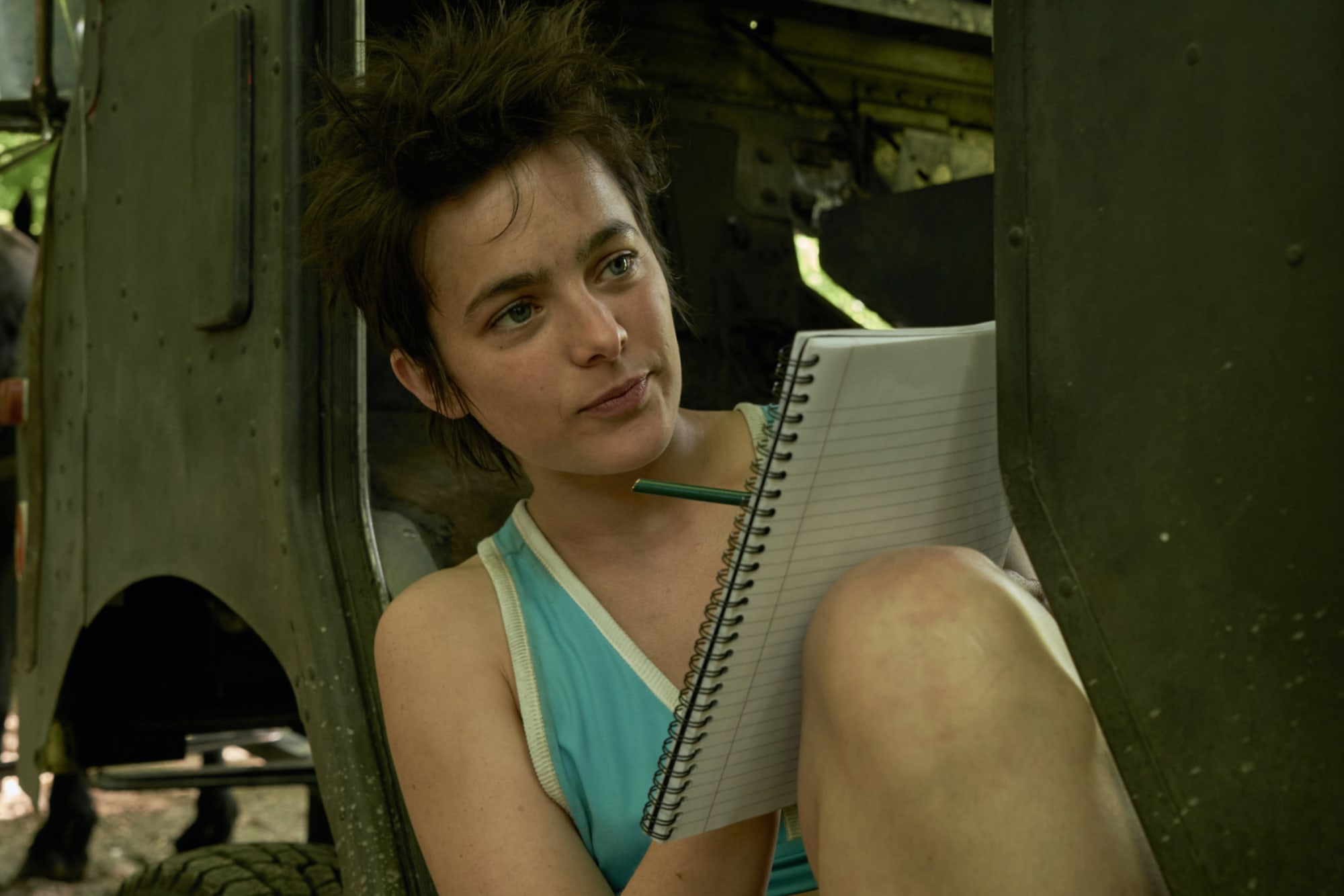
While dealing with existential themes through its dystopian narrative, ‘Station Eleven’ is one of the most moving TV shows from 2022. Set in a post-apocalyptic world, this miniseries becomes a life-affirming saga that uses a humanistic approach to deal with its timely themes. This Patrick Somerville creation also shows that an exuberant budget isn’t always the solution to execute a grand vision. It deals with the subject of the survival of humankind after a terrible pandemic that uproots their usual way of living.
It meticulously presents theatrical recreations of Shakespearean dramas while showcasing their careful understanding of their limited means. Even with the constrained lighting and costume choices available to its post-pandemic humans, the crew makes their vision seem highly cinematic. (Mad props to the clever production design choices!)
It hits home not just due to the relatability factor of us trying to adjust to the ‘new normal’ during the Covid outbreak but because of its profound understanding of what makes each of us human. The newfound communities choose texts, be it the age-old classics or contemporary fantasy novels, to make sense of the world they live in, which goes on to show the ceaseless impact of great art. Station Eleven may be another addition to the same list of great art by virtue of being impeccably cinematic and endlessly resonating.




